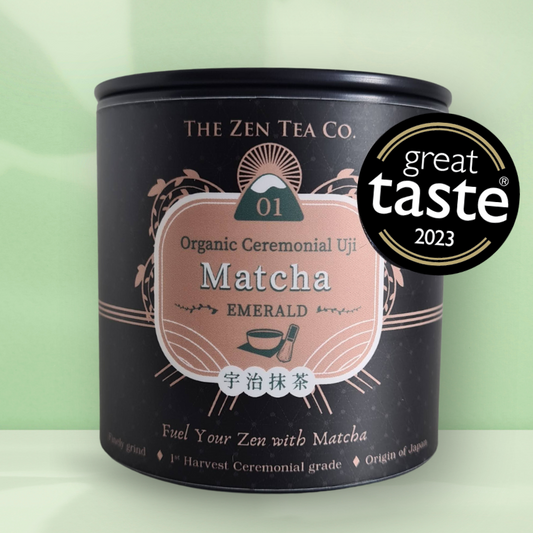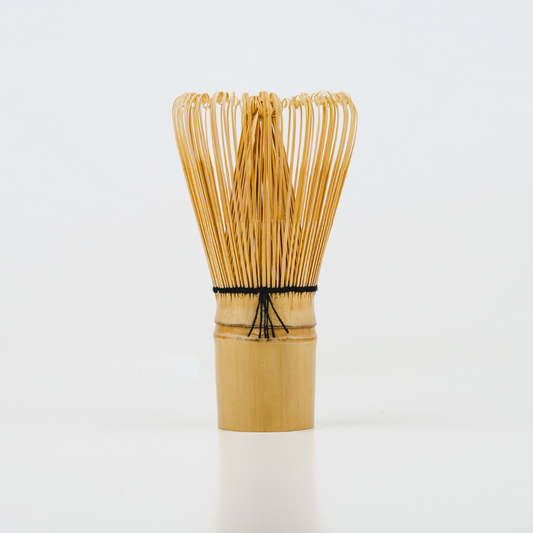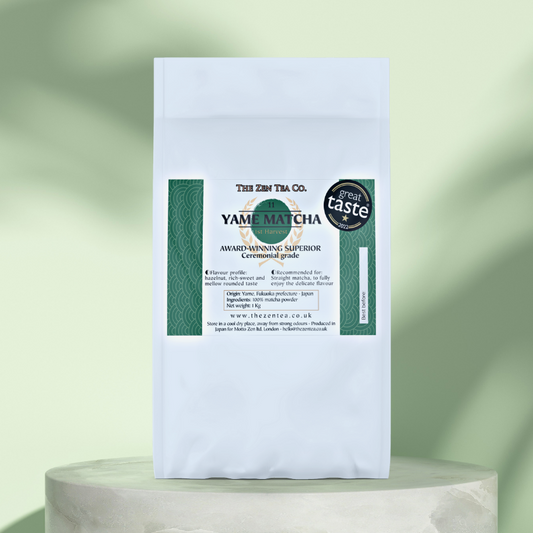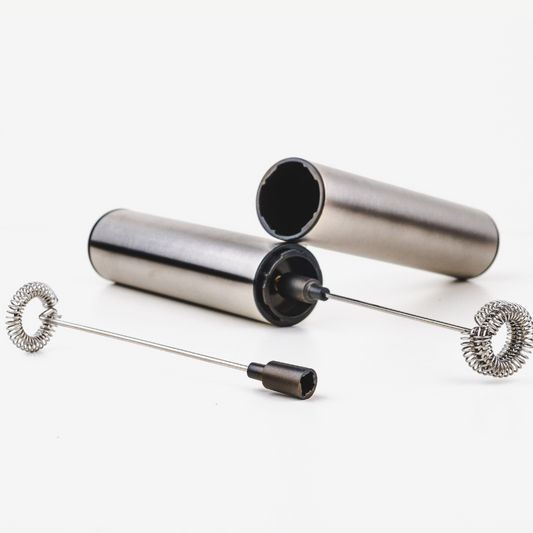
Matcha Tea vs. Coffee: Which One Wins the Battle of the Brews?
Share
In the world of beverages, two titans stand tall—matcha tea and coffee. Each has a loyal following, an unmistakable taste, and a plethora of benefits to offer. But when it comes to the ultimate showdown, which one reigns supreme? In this article, we'll take a look at the health benefits, caffeine content, taste and flavour, preparation and serving methods, cultural significance, and environmental impact of matcha tea and coffee. So let's dive in and find out which one wins the battle of the brews!
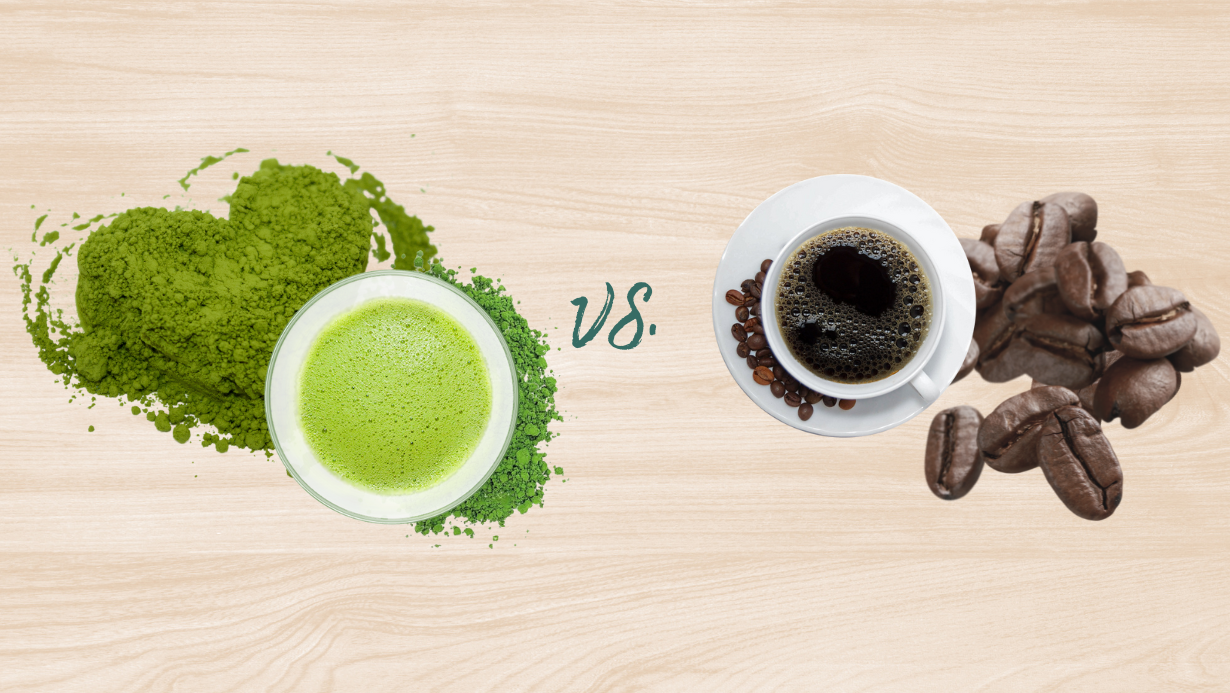
Introduction
First, let's start with a brief introduction to matcha tea. This vibrant green elixir originated in ancient China and Japan, where it has been consumed for centuries. Matcha tea is made from shade-grown tea leaves that are finely ground into a powder, resulting in a drink that is rich in flavour and packed with antioxidants. Its distinct earthy and vegetal taste gives matcha tea a unique and sophisticated edge.
On the other side of the ring, we have coffee—an iconic beverage that has fuelled societies for centuries. With its bold aroma and range of flavours, coffee has become a morning ritual and a social lubricant. From the bright acidity of a well-crafted espresso to the rich and robust notes of a French press brew, coffee has an undeniable allure.
Caffeine content
Speaking of caffeine, let's take a closer look at how much is in matcha tea and coffee. Matcha tea contains about 35mg of caffeine per 8oz serving, which is three times less than the amount found in a cup of coffee. However, the caffeine in matcha tea is released more slowly, thanks to the presence of L-theanine, which helps to promote a sense of calm and relaxation.
Coffee, on the other hand, contains about 70-140mg of caffeine per 8oz serving, depending on the brewing method and type of coffee used. This can be a good thing if you're looking for a quick energy boost, but it can also lead to jitters, anxiety, and disrupted sleep.
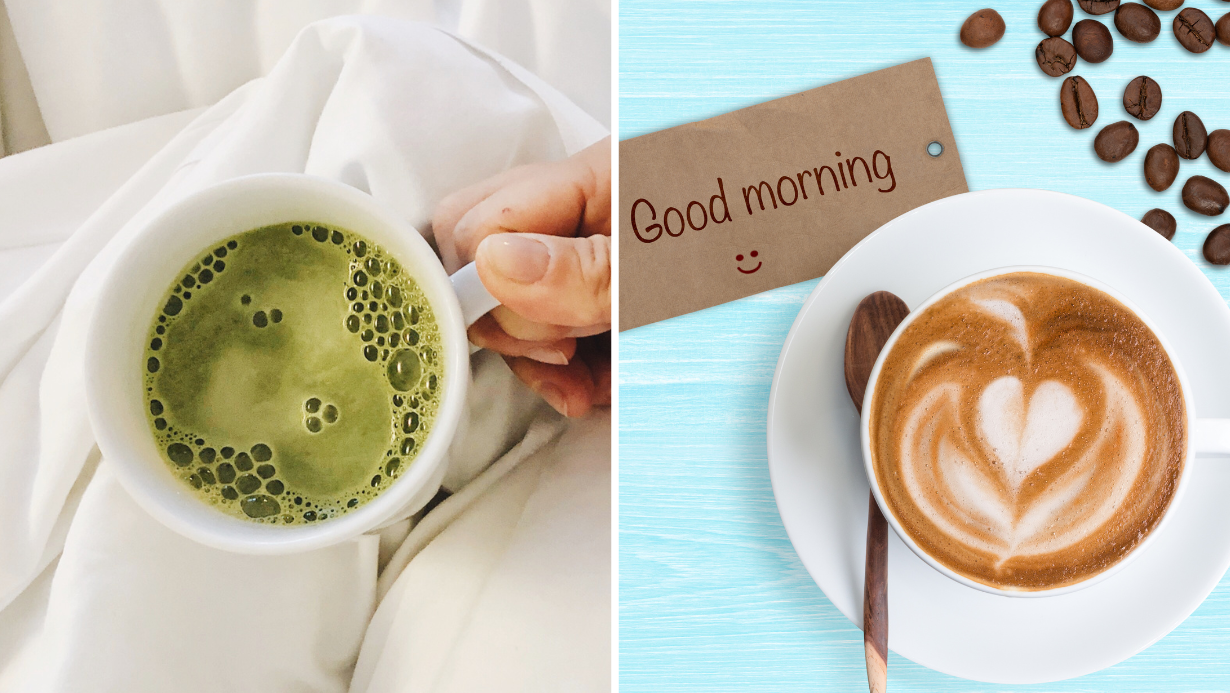
So, when it comes to caffeine content, matcha tea takes the crown. While a cup of coffee can provide a quick jolt of energy, matcha tea, although contains less caffeine, offers a more sustained and balanced release of energy. This is due to matcha tea's unique combination of caffeine and L-theanine, an amino acid known for its calming effects. The caffeine in matcha tea is absorbed slowly, leading to a longer-lasting energy boost without the jitters or crash often associated with coffee.
Health Benefits
When it comes to nutritional benefits, matcha tea again shines brightly. It's like sipping on a cup of wellness. Matcha tea is loaded with antioxidants, particularly catechins, which help protect the body against free radicals and promote overall well-being. In fact, matcha tea contains significantly higher levels of antioxidants compared to coffee. With matcha tea, you're not just indulging in a delicious beverage—you're nourishing your body with a powerhouse of nutrients. And, let's not forget about the calming effect of matcha tea. L-theanine, abundantly present in matcha tea, promotes relaxation and reduces stress without causing drowsiness. It's the perfect balance - an energising pick-me-up that simultaneously calms the mind.
Coffee, on the other hand, contains a different set of antioxidants, called polyphenols, which are also beneficial for the body. It's also a good source of vitamins and minerals, including vitamin B2, vitamin B5, potassium, and manganese. However, coffee can be dehydrating and may cause jitters or anxiety in some people due to its high caffeine content.
Taste
You are the judge! When it comes to taste and flavour, matcha tea and coffee couldn't be more different. Matcha tea has a vibrant green colour and a rich, earthy flavour profile with hints of grass and sweetness. It's often described as having a "umami" taste, which means it's savoury and satisfying. The taste of matcha tea can vary largely depending on the quality of the tea, the growing conditions, and the preparation method, but its unique flavour profile really offers a sensory experience like no other.
Coffee also has a wide range of flavour profiles depending on the type of bean, the roast level, and the brewing method. Some coffee is rich and chocolatey, while others are fruity and acidic. The taste of coffee can also be influenced by the addition of milk or sugar, which can either enhance or mask its natural bitterness.
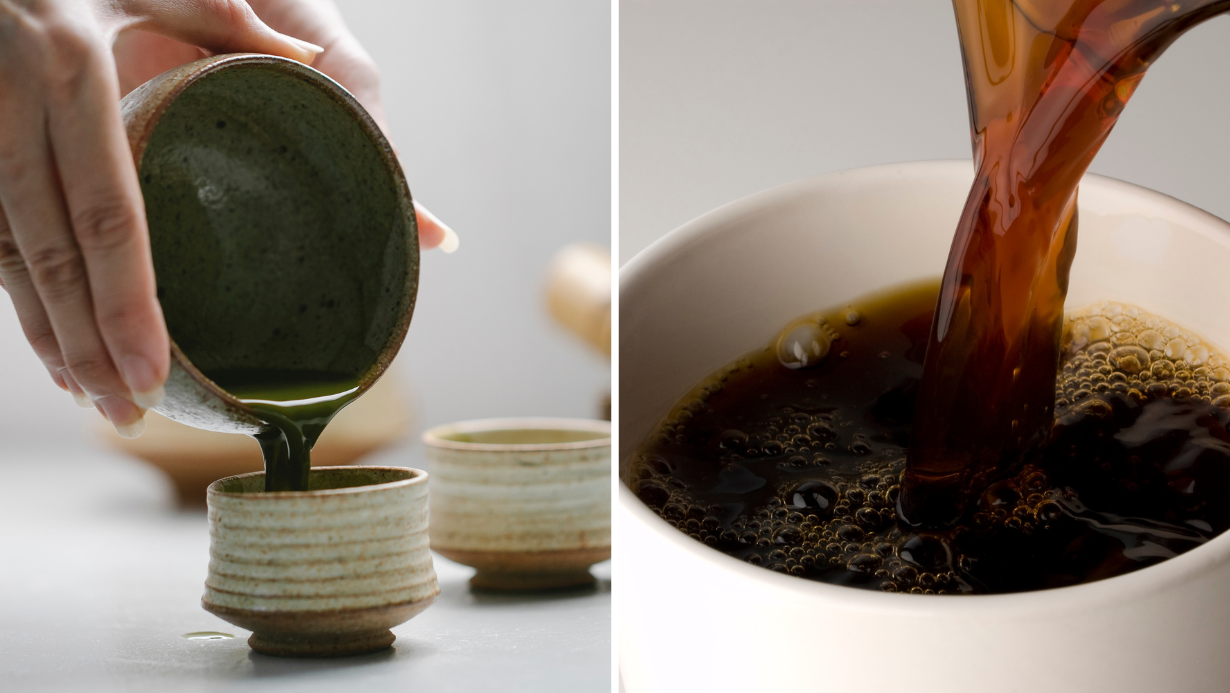
In our opinion: the earthy and slightly vegetal notes are a refreshing departure from the familiar bitterness of coffee. Sipping on a well-prepared cup of matcha tea is akin to embarking on a journey of taste—one that engages the senses and leaves a lasting impression.
Not only does matcha tea delight the taste buds, but it also captivates the eyes. Its vibrant green colour, derived from the chlorophyll-rich shade-grown tea leaves, adds an element of visual splendour to every cup. In a world where we eat with our eyes first, matcha tea holds a distinct advantage.
Cultural Significance
Both matcha tea and coffee have a rich cultural history, and they hold significance in different parts of the world. Matcha tea is deeply ingrained in Japanese culture and is often used in traditional tea ceremonies. Matcha is also linked to Chado “the way of tea”, read more about this in this post. It's also popular in other parts of Asia, including China and Korea. In recent years, matcha tea has gained popularity in the West, where it's often used as a much healthier alternative to coffee. In addition matcha tea offers a rich cultural heritage and a sense of mindfulness. The ceremonial preparation of matcha tea is a revered tradition, steeped in history and rooted in Zen Buddhist practices. The rituals associated with matcha tea encourage us to slow down, be present, and appreciate the simple pleasures of life—a meditative experience that transcends the act of drinking a beverage.
Coffee, on the other hand, has a long and storied history, with origins in Ethiopia and spread throughout the world. Coffee plays a significant role in many cultures, from the Italian espresso to the Turkish coffee ceremony. In some countries, such as Colombia and Brazil, coffee production is a major part of the economy and is deeply intertwined with the culture.
Environmental Impact
Finally, let's take a look at the environmental impact of matcha tea and coffee. Both have their pros and cons, but matcha tea tends to be more eco-friendly overall. Matcha tea is made from shade-grown tea plants, which require less water and less fertiliser than sun-grown tea plants used to make regular green tea. In addition, the entire tea leaf is consumed in matcha tea, so there's less waste.
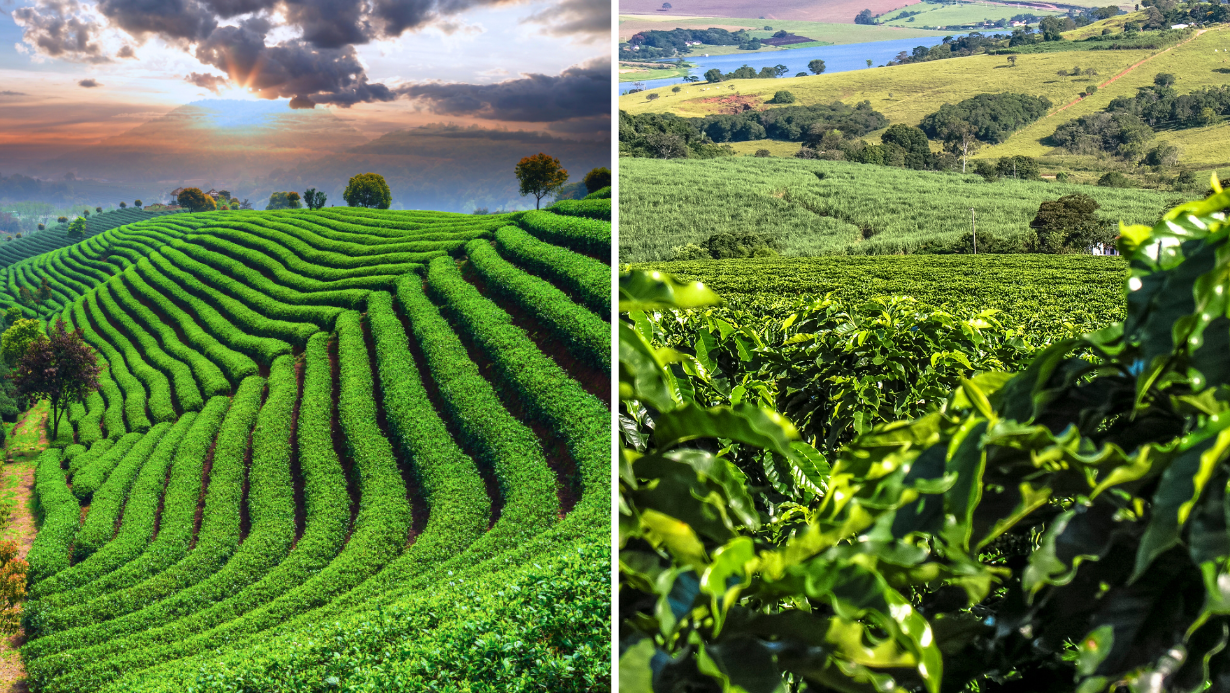
Coffee, on the other hand, requires a lot of water, energy, and resources to produce. Coffee farms can also contribute to deforestation and habitat loss, especially in areas where rainforests are being cleared to make way for coffee plantations. Although some coffee producers are making efforts to reduce their environmental impact by using sustainable farming practices and supporting conservation efforts, the coffee production still has a considerable impact on the environment.
Another point in matcha tea's favour is its environmental impact. Matcha tea production, with its focus on shade-grown cultivation and minimal processing, is often more sustainable compared to coffee farming practices which, especially on a large scale, can contribute to deforestation and the use of chemical fertilisers and pesticides. By choosing matcha tea, you can enjoy your brew with a clear conscience, knowing that you're making a more environmentally friendly choice.
And the winner is...
In the battle of the brews, matcha tea emerges as the clear winner. Its unique combination of sustained energy, nutritional benefits, delightful taste, and cultural significance sets it apart from coffee. Matcha tea offers a holistic experience—one that nourishes the body, soothes the mind, and delights the senses.
But let's not forget that personal preference plays a significant role in this battle. Coffee enthusiasts may argue for the bold flavours, the comforting warmth, and the distinct ritual associated with their beloved brew. And that's perfectly fine! The beauty of the beverage world lies in its diversity and the myriad of choices available to suit individual tastes and preferences.
So, while matcha tea reigns supreme in this battle, it's important to remember that the true winner is you—the connoisseur of fine beverages. Whether you choose to indulge in the calming allure of matcha tea or revel in the invigorating aroma of coffee, the ultimate decision rests in your hands.
In conclusion, matcha tea triumphs over coffee in the battle of the brews. Its unique combination of sustained energy, health benefits, delightful taste, and cultural significance make it a force to be reckoned with. So, go ahead and embrace the green elixir of matcha tea—the superfood that not only tantalises your taste buds but also nourishes your body and uplifts your spirit. Cheers to matcha tea—the undisputed champion of the brews!



